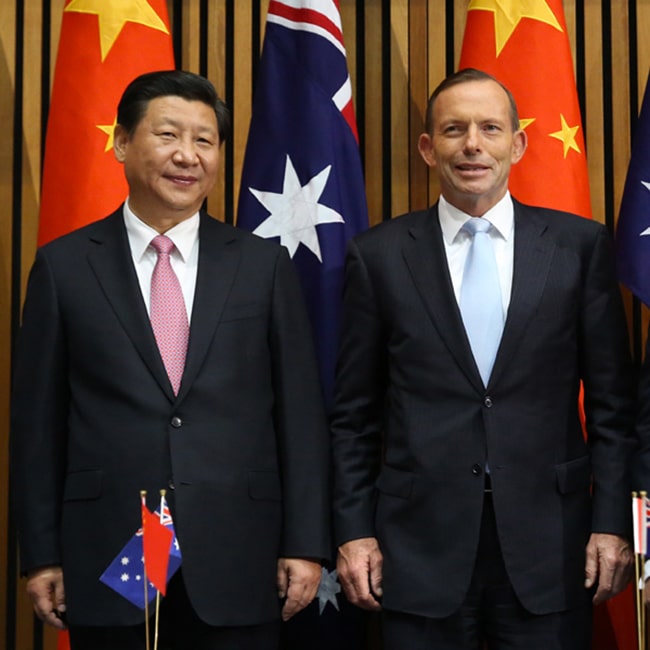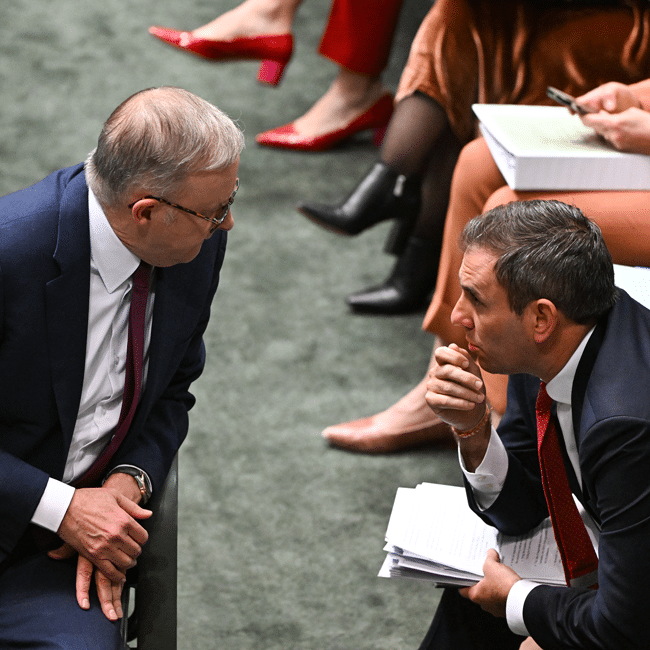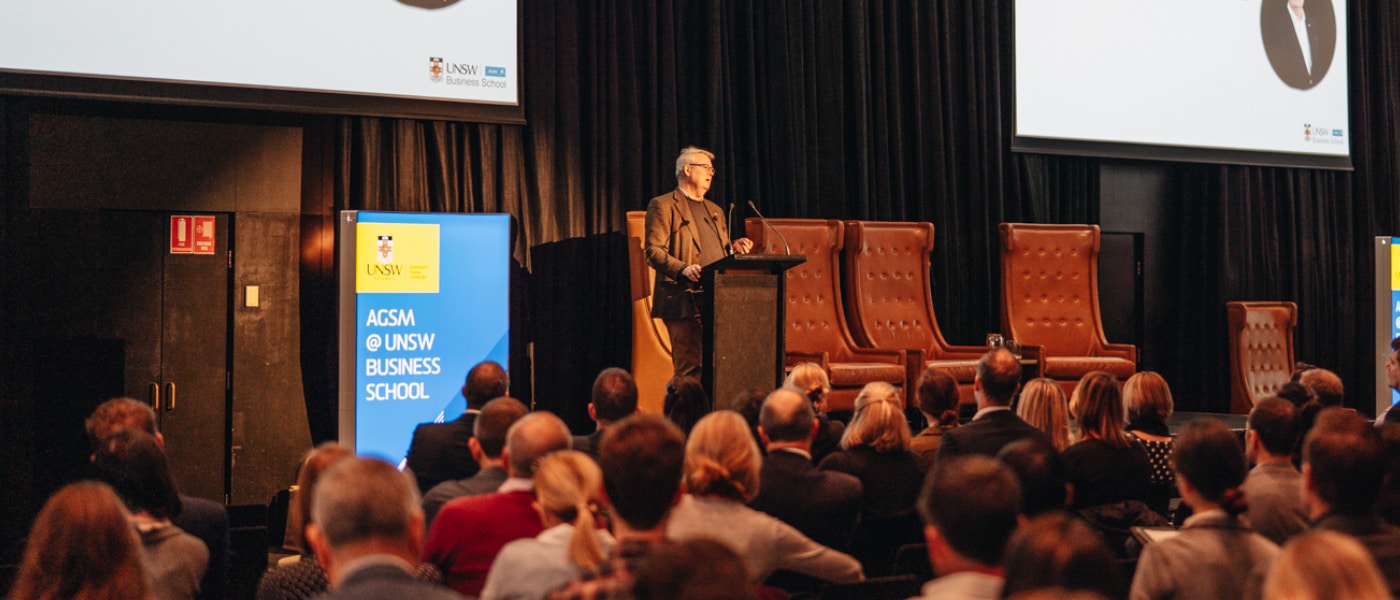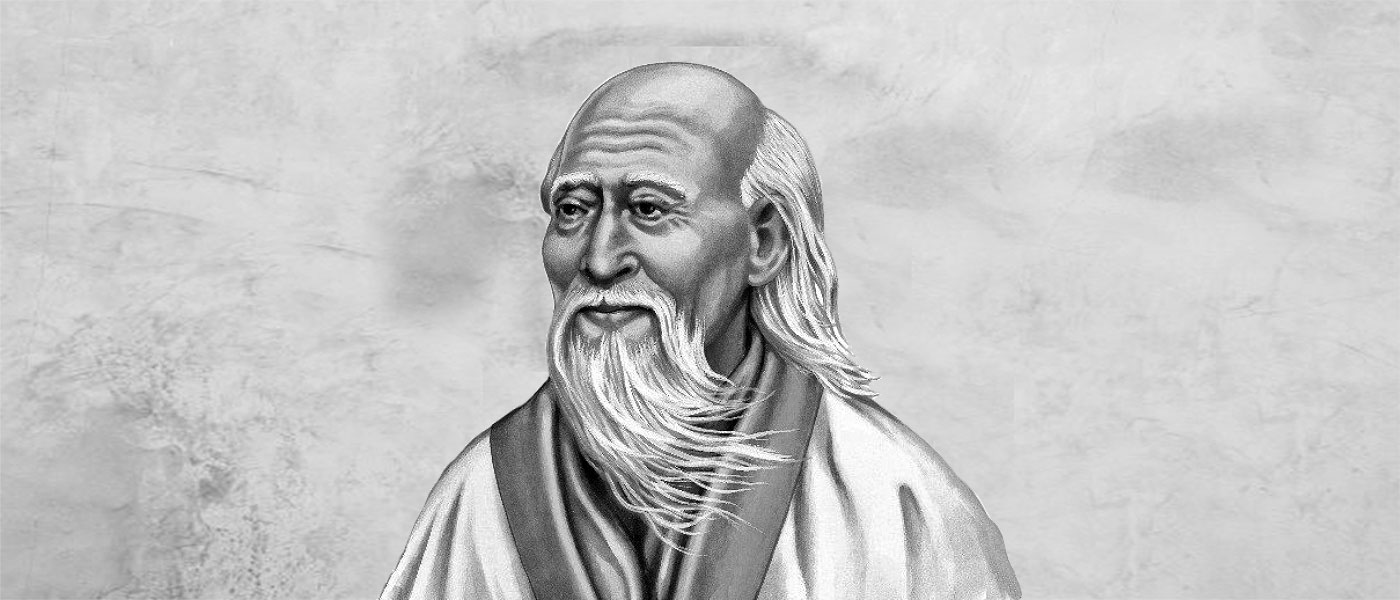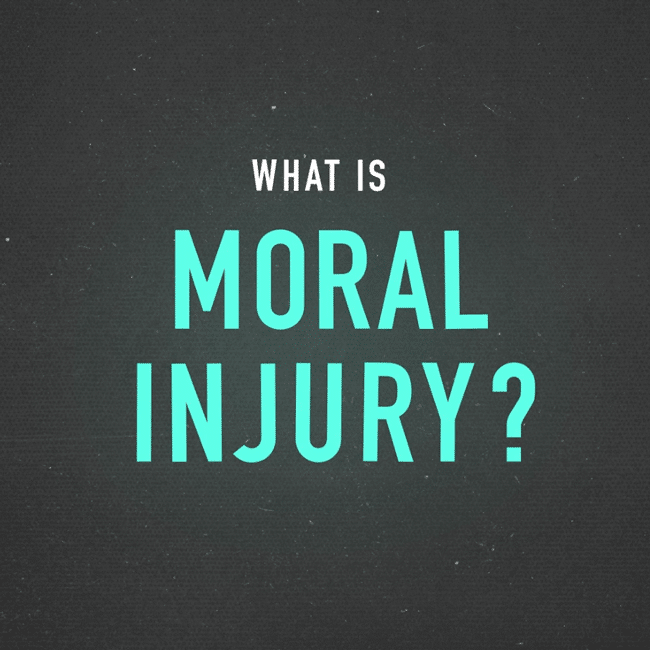There’s something Australia can do to add $45b to the economy. It involves ethics.

There’s something Australia can do to add $45b to the economy. It involves ethics.
Opinion + AnalysisBusiness + LeadershipSociety + Culture
BY The Ethics Centre 29 OCT 2020
Australia faces a perfect storm. An economic deficit, a global pandemic, an uncertain future of work, and long-term social and environmental change around the climate crisis and reconciliation with Indigenous Australians to name but a few.
Adding to this magnitude of challenges are the low levels of trust Australians have in our leaders and our neighbours. In fact, research has found that only 54% of Australians generally trust people they interact with, and as a nation we score ‘somewhat ethical’ on the Governance Institute’s Ethics Index.
How do we navigate the road ahead? One thing is abundantly clear: we need better ethics. That’s why we commissioned Deloitte Access Economics to find out the economic benefits of improving ethics in Australia.
The outcome is The Ethical Advantage, a report that uses three new types of economic modelling and a review of extensive data sets and research sources to mount the case for pursuing higher levels of ethical behaviour across society.
For the first time, the report quantifies the benefits of ethics for individuals and for the nation. The ethical advantage is in, and the findings are compelling. They include:
A stronger economy: If Australia was to improve ethical behaviour, leading to an increase in trust, – average annual incomes would increase by approximately $1,800. This in turn would equate to a net increase in total incomes of approximately $45 billion.
More money in Australians pockets: Improved ethics leads to higher wages, consistent with an improvement in labour and business productivity. A 10% increase in ethical behaviour is associated with up to a 6.6% in individual wages.
Better returns for Australian businesses: Unethical behaviour leads to poorer financial outcomes for business. Increasing a firm’s performance based on ethical perceptions, can increase return on assets by approximately 7%.
Increased human flourishing: People would benefit from improved mental and physical health. There is evidence that a 10% improvement in awareness of others’ ethical behaviour is associated with a greater understanding one’s own mental health.
The report’s lead author and Deloitte Access Economics partner, Mr John O’Mahony, said:
“No one would seriously argue that pursuing higher levels of ethical behaviour and focus was a bad thing, but articulating the benefits of stronger ethics is more challenging.”
“Our report examines the case for improving ethics as a way of addressing these broader economic and social challenges – and the nature and extent of the benefits that would accrue to the nation if we got this right.”
The report also identifies five inter–linked areas for improvement for Australia and its approach to ethics, supported by 30 individual initiatives:
- Developing an Ethical Infrastructure Index
- Elevating public discussions about ethics
- Strengthening ethics in education
- Embedding ethics within institutions
- Supporting ethics in government and the regulatory framework
The findings and recommendations demonstrate the value of The Ethics Centre’s continued contribution to Australian life. For thirty years, The Ethics Centre has aimed to elevate ethics within public debate, organisations, education programs and public policy. Executive Director of The Ethics Centre, Dr Simon Longstaff said the findings validate the impact of those activities and reveals the potential that can be unlocked with greater support.
“The compelling moral argument that ethical behaviour binds a society and its institutions in a common good is now, thanks to Deloitte Access Economics’ research and modelling, also a compelling economic argument. Best of all, we need not be perfect – just better.”
A copy of The Ethical Advantage can be found at this link.
Ethics in your inbox.
Get the latest inspiration, intelligence, events & more.
By signing up you agree to our privacy policy
You might be interested in…
Opinion + Analysis
Business + Leadership, Relationships
Unconscious bias: we’re blind to our own prejudice
Explainer
Business + Leadership, Politics + Human Rights, Relationships
Ethics Explainer: Power
Opinion + Analysis
Politics + Human Rights, Relationships, Society + Culture
You won’t be able to tell whether Depp or Heard are lying by watching their faces
Opinion + Analysis
Relationships, Society + Culture
Violence and technology: a shared fate
BY The Ethics Centre
The Ethics Centre is a not-for-profit organisation developing innovative programs, services and experiences, designed to bring ethics to the centre of professional and personal life.
Businesses can’t afford not to be good

Businesses can’t afford not to be good
Opinion + AnalysisBusiness + Leadership
BY The Ethics Centre 28 OCT 2020
A famous New Yorker cartoon depicts a businessman sitting by a campfire, still in his suit, speaking to two young children.
“Yes, the planet got destroyed,” he concedes. “But for a beautiful moment in time we created value for shareholders.”
The logic seems perverse, but more the worrying reality is that in reality, it’s quite pervasive. We’ve seen Royal Commissions into aged care and financial services, growing pressure on tech companies to address social issues and the overwhelming pressure for businesses to address climate change. Despite this, we have seen very few organisations making meaningful investments into ethics.
We should worry that we’re living in the campfire CEO’s beautiful moment in time.
At The Ethics Centre, we’ve spent over thirty years getting into what makes organisations tick. How they’re motivated, what they care about and what goals they serve. Time and again, we’ve seen how the real desire to act with integrity, uphold customer interests and attend to vulnerable people is pitted against business imperatives.
No matter how many scandals we see, the message still seems to be the same: while you’re successful, you can be ethical. But if you’re not successful, you’ll need to park your ethics till you are.
This is the campfire CEO’s logic. By focussing on the (often illusory) short–term value captured that ethical shortcuts can at times promise, businesses lose out in the long run. And thanks to new research commissioned by The Ethics Centre, we now know exactly how much businesses are losing out on by giving away the Ethical Advantage. We also know how much courageous businesses gain by making ethics a priority.
Research by Deloitte Access Economics has revealed that businesses who are seen as ethical – fair in business, transparent and open – enjoy a higher returns on assets. They are also less likely to have staff experiencing mental health issues, because when we believe the people around us are ethical, we experience less mental health challenges.
What’s more, if we are able to improve the ethical standing of enough people and businesses, we’ll not only boost business returns, we’ll improve wages and GDP. Nice guys are the tortoises of the business world. They finish first in the long run.
Cris Parker, head of the Ethics Alliance, a community of businesses committed to a more ethical way of working, says “when organisations make a concerted effort to invest in ethics, they create an environment where good intentions are just the beginning.”
She believes it is when ethics shifts from being a leader’s obligation to being a shared responsibility that real change happens. “It’s the cumulation of every employee serving that purpose, doing the right thing that really makes the difference. “
Realising these benefits requires us to recognise the source of the campfire CEO’s error: economic narrow-mindedness. The willingness to destroy the planet in favour of business returns (which is, in fairness, a caricature of most of today’s business leaders) demonstrates a failure to recognise how dependent our economy is on the wellbeing of the planet.
Similarly, pursuing economic returns without considering the means by which they’re achieved ignores the crucial role that trust, integrity and character plays in preserving our economy.
We don’t trade with people we think are going to betray us. We don’t invest when we can’t trust others to be careful with our investments.
Michelle Bloom leads The Ethics Centre’s consulting and leadership team. She believes ethical improvement requires us to embrace complexity rather than looking for simple solutions.
“Today, business leaders are dealing with very complex operating environments where action and bottom–line results are rewarded over reflection, perspective seeking and co-ordination. This haste to decide without deliberation limits leaders to mechanistic solutions where systemic, novel and context–specific approaches are required.”
Unfortunately, realising these benefits is harder than it seems.
Much like an optical illusion you can only properly see by looking away from it, the economic benefits of ethics are only likely to be realised by those who seek it with integrity rather than a hunger for profit.
Hypocrites and cynics need not apply for the ethical advantage. But for the sincere and the patient, results will come in time. However, it will require businesses to campaigning not just for their industries to be better as a whole, but for the large-scale Ethical Infrastructure investments Australia needs to ensure we have trustworthy markets, institutions and systems.
For Michelle Bloom, alongside large-scale change, organisations need to get their own house in order. “Embedding an Ethics Framework into the organisational system and its processes is the first step,” she says. Next is developing your leaders’ systemic and ethical thinking to make good decisions in complexity as well as ensuring the culture of the organisation aligns to your Ethics Framework.”
Each of these steps, alongside developing the capacity for good decision-making and embedding ethics into the design of all products and services, are markers of the kind of integrity that grants the Ethical Advantage.
In our line of work, we often hear from so-called pragmatist who see ethics as a nice idea that doesn’t work in the real world. The numbers are in, and it turns out the most pragmatic thing to do is make ethics a top priority. Anything else would be bad business.
Ethics in your inbox.
Get the latest inspiration, intelligence, events & more.
By signing up you agree to our privacy policy
You might be interested in…
Opinion + Analysis
Business + Leadership
Ask an ethicist: How to approach differing work ethics between generations?
Explainer
Business + Leadership, Climate + Environment
Ethics Explainer: Ownership
Opinion + Analysis
Business + Leadership, Health + Wellbeing, Relationships
Ending workplace bullying demands courage
Opinion + Analysis
Business + Leadership, Health + Wellbeing
Your donation is only as good as the charity you give it to
BY The Ethics Centre
The Ethics Centre is a not-for-profit organisation developing innovative programs, services and experiences, designed to bring ethics to the centre of professional and personal life.
Ethics Explainer: Ethical Infrastructure

Ethics Explainer: Ethical Infrastructure
ExplainerBusiness + Leadership
BY The Ethics Centre 27 OCT 2020
When we think about the kinds of things a society needs for its survival and flourishing, we tend to begin with the basic necessities.
A society needs enough food to feed everyone, road and transport infrastructure, housing. It needs laws to manage how people treat one another, systems of government to make decisions. In a modern society, complex communications and other forms of technical infrastructure are required.
Each of these this is a component of a society’s infrastructure. Each is essential to the common good, survival and wellbeing of a society. However, just as essential for the wellbeing of a society is ethical infrastructure – the formal and informal means by which society regulates the use of power by both public and private institutions to ensure it serves the common good.
The term ethical infrastructure has been used in a number of countries around the world, including The United States of America. However, it has typically been used to refer to systems of control, compliance and risk management. There is an opportunity to expand the idea of ethical infrastructure so it does not simply refer to the basic rules of public service.
A society can have a clear set of rules and principles about appropriate spending, disclosure of interests and so on, and still not have systems and institutions that serve the common good. We need only look at the United States for proof of this.
This is why it is better to consider ethical infrastructure to be a collection of institutions, systems, norms and processes that we use to ensure not only that society is operating effectively, but that it is operating ethically.
To understand why this is necessary, consider the fact that there is a person or group who is responsible for, and in control of, each piece of social, physical or digital infrastructure we have and need. This control confers power. The power to give or deny essential resources to some groups, to favour some people over others or to mismanage those resources due to incompetence, laziness or selfishness.
Handing this kind of power over to somebody without some assurance they will use it well would be reckless and foolish. Indeed, some of the most influential voices in Western political philosophy – Thomas Hobbes, John Locke, Jean-Jacques Rousseau and John Rawls – have argued that it’s only when the powerful are willing to act in the interests of those they are meant to serve that they should have any power at all. Ethical infrastructure refers to the means by which a society can ensure power is exercised in the common interest, and take meaningful action when it is not.
A clear example of a piece of ethical infrastructure would be laws, policies and systems protecting the actions of whistleblowers, who draw attention to unethical behaviour – often by the powerful. Many organisations lack appropriate systems and processes for employees to flag ethical issues, and even if they have these processes, there are often cultural factors that mean those processes don’t have the results they should. This can drive some whistleblowers to look for other avenues outside their organisation, but often do not feel supported – practically or legally – in doing so.
Thinking about an issue like this as a challenge of ethical infrastructure helps us see it as a systemic issue. It is not simply a matter of new laws. We also need to normalise new ways of thinking about dissenting, concerned or outspoken staff within our organisations.
We need to ensure individuals have the training and support they need to identify and draw attention to ethical issues and we must have appropriate accountability in cases where it appears important information has been covered up or kept secret. This complex and powerful network of norms, policies, institutions, processes and people is a society’s ethical infrastructure.
Each aspect of a society’s infrastructure is designed to allow its citizens to flourish: provided with the means to live prosperously, confidently, safely and well. Ethical infrastructure serves this goal in two ways. First, it ensures the other aspects of our infrastructure are serving everyone’s needs, and second, it gives people the confidence to take risks, act creatively and magnanimously, trust in their neighbours, leaders and institutions and feel confident in theirs and their loved ones futures.
Because without this, no amount of sophisticated infrastructure will secure what we’re all searching for: a life worth living.
Ethics in your inbox.
Get the latest inspiration, intelligence, events & more.
By signing up you agree to our privacy policy
You might be interested in…
Opinion + Analysis
Business + Leadership
Do organisations and employees have to value the same things?
Opinion + Analysis
Business + Leadership
Beyond the shadows: ethics and resilience in the post-pandemic environment
Opinion + Analysis
Society + Culture, Business + Leadership
How to tackle the ethical crisis in the arts
Opinion + Analysis
Business + Leadership
Can there be culture without contact?
BY The Ethics Centre
The Ethics Centre is a not-for-profit organisation developing innovative programs, services and experiences, designed to bring ethics to the centre of professional and personal life.
Berejiklian Conflict
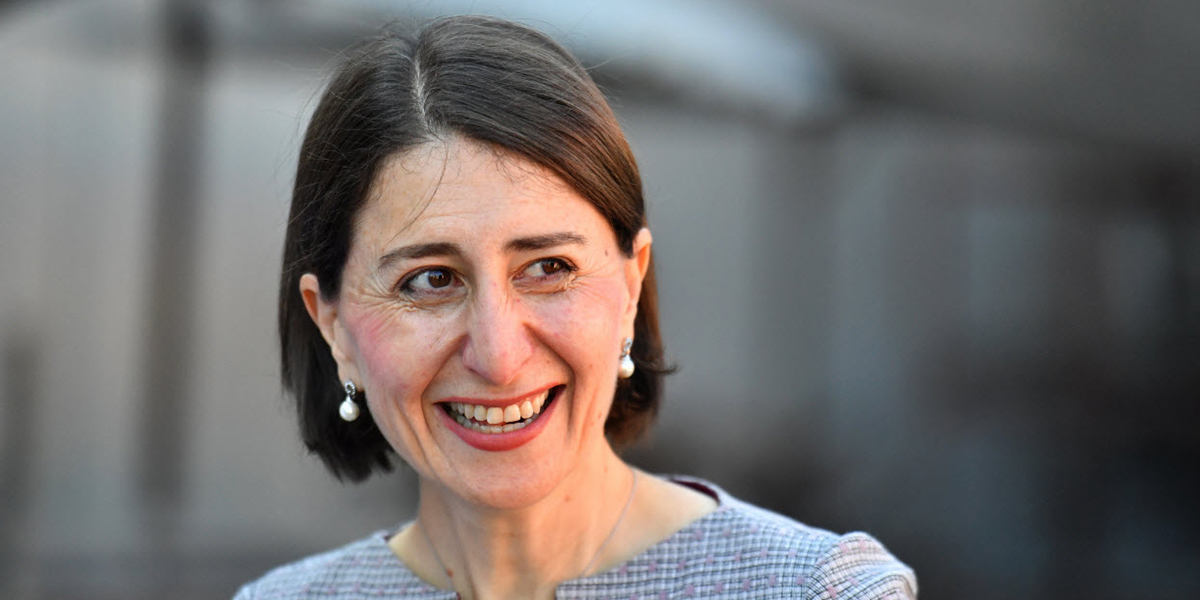
Berejiklian Conflict
Opinion + AnalysisBusiness + LeadershipPolitics + Human Rights
BY Simon Longstaff 14 OCT 2020
The next phase in the political life of NSW Premier, Gladys Berejiklian, depends on answers to three questions.
First, was her former relationship with Daryl Maguire not just ‘close’ but, in fact, an “intimate personal relationship”? Second, did the Premier make or participate in any decisions that could reasonably be expected to confer a private benefit on Mr Maguire? Finally, if the answer is ‘yes’ to each of these questions, then did Ms Berejiklian declare her interest in the Ministerial Register of Interests and seek the permission of Cabinet to continue to act?
Nothing else matters – not the Premier’s choice of friends, not her judgement … only the answer to those three questions.
The reason for this can be found in the NSW Ministerial Code of Conduct (the Ministerial Code) which has the force of Law. As might be expected, the Ministerial Code imposes obligations that are in addition to and are more onerous than, those applying to Members of Parliament.
The Preamble to the Ministerial Code of Conduct says, amongst other things, that, “In particular, Ministers have a responsibility to avoid or otherwise manage appropriately conflicts of interest to ensure the maintenance of both the actuality and appearance of Ministerial integrity.” With that end in mind, the Code not only takes account of the personal interests of individual Ministers – but also those of members of their families. It is here that the precise nature of the Premier’s relationship with Mr Maguire risks becoming a matter of public, rather than personal, interest. This is because the Ministerial Code of Conduct defines a “family member”, in relation to a Minister, as including, “any other person with whom the Minister is in an intimate personal relationship”.
‘Intimate’ is not a word used in the ICAC hearing to describe the Premier’s relationship with Mr Maguire.
Instead, it was agreed that theirs had been a “close personal relationship” – the precise nature of which was never explained. However, the evidence suggested that the words ‘close’ and ‘intimate’ may have been synonymous. If so, then Mr Maguire will have fallen within the definition of ‘family member’ during the period of his relationship with the Premier.
However, this (in itself) is neither here nor there. The nature of Ms Berejiklian’s relationship with Mr Maguire was (and should have remained) an entirely private matter up until the point where the Premier became involved in any Ministerial decision that “could reasonably be expected to confer a private benefit” on Mr Maguire. Only then did the public interest become engaged.
So, did any such decisions come before the Premier (acting alone or in Cabinet) during the period of her relationship with Mr Maguire? And if so, did she declare her interest as she is required to do under the Ministerial Code? The matter would then have been in the hands of her Cabinet colleagues as the final provision of the Code states that, “a ruling in respect of the Premier may be given if approved by the Cabinet”.
The Premier obviously knew something of Mr Maguire’s hopes and plans – even if she thought them to be fanciful. She knew of his financial exposure and the material impact that NSW Government decisions might have on his personal wealth. We also know that, for a time, Mr Maguire was at the centre of the Premier’s private affections. The issue is not that the Premier would have acted against the public interest for the benefit of Mr Maguire. I sincerely doubt that she would ever do so. It is most importantly a question of what was done to ensure the maintenance of both the actuality and appearance of Ministerial integrity.
The Premier had a formal obligation to declare her relationship with Mr. Maguire if, a) it was intimate, b) she was involved in deciding any matter that could reasonably be expected to confer a private benefit on him. It was then up to her Cabinet colleagues to rule on how she should proceed from there. Beyond settling these questions, the public has no legitimate interest in the private life of Gladys Berejiklian – except, perhaps, to extend to her our sympathy if she has been drawn inadvertently into a web of grief spun by a former friend.
Ethics in your inbox.
Get the latest inspiration, intelligence, events & more.
By signing up you agree to our privacy policy
You might be interested in…
Opinion + Analysis
Business + Leadership
The Royal Commission has forced us to ask, what is business good for?
WATCH
Politics + Human Rights
James C. Hathaway on the refugee convention
Opinion + Analysis
Politics + Human Rights, Relationships, Society + Culture
Of what does the machine dream? The Wire and collectivism
Opinion + Analysis
Business + Leadership, Health + Wellbeing, Society + Culture
Corruption in sport: From the playing field to the field of ethics
BY Simon Longstaff
Simon Longstaff began his working life on Groote Eylandt in the Northern Territory of Australia. He is proud of his kinship ties to the Anindilyakwa people. After a period studying law in Sydney and teaching in Tasmania, he pursued postgraduate studies as a Member of Magdalene College, Cambridge. In 1991, Simon commenced his work as the first Executive Director of The Ethics Centre. In 2013, he was made an officer of the Order of Australia (AO) for “distinguished service to the community through the promotion of ethical standards in governance and business, to improving corporate responsibility, and to philosophy.” Simon is an Adjunct Professor of the Australian Graduate School of Management at UNSW, a Fellow of CPA Australia, the Royal Society of NSW and the Australian Risk Policy Institute.
Character and conflict: should Tony Abbott be advising the UK on trade? We asked some ethicists

Character and conflict: should Tony Abbott be advising the UK on trade? We asked some ethicists
Opinion + AnalysisBusiness + LeadershipPolitics + Human Rights
BY Matthew Beard 17 SEP 2020
Former Aussie PM Tony Abbott’s recent appointment to an unpaid role as a trade adviser to the Johnson government in the UK has sparked controversy in both countries.
UK government MPs have continually been asked what it means to have a man who is, by the judgement of many in both countries, “a misogynist and a homophobe”, as well as a climate change denier and – more recently – sceptical about coronavirus lockdown measures.
In Australia, politicians, journalists and citizens have all questioned the appropriateness of a former Prime Minister accepting a position that leaves him serving a foreign government. Whilst Abbott has obligations under the Foreign Influence Transparency Scheme that are designed to prevent conflicts of interest, there are many who believe Abbott is equipped with too much internal knowledge of Australia’s trade interests, internal party politics and regional issues in the Pacific – accrued as Prime Minister – for him to serve another government.
Given the range of questions that arise around both conflict and character, we made a list of some of the big ethical questions the Abbott situation brings up, and spoke to a few ethicists to help answer them.
1. Abbott is a private citizen now. Shouldn’t he be able to take any job he wants?
“Being Prime Minister isn’t like any other job,” says Hugh Breakey, a Senior Research Fellow at Griffith University’s Institute for Ethics, Governance and Law. “Abbott would have been privy to high level information and forward planning that he is obligated to hold secret.” If a potential employer of Abbott – whether in a paid role or not – would benefit from this situation, Breakey argues that it would give Abbott a conflict of interests.
But it’s not just a question of conflicts of interest. In situations like this, it is reasonable to consider whether this role was given as a “kind of payback for favourable treatment during his time in power,” Breakey says.
However, whilst Abbott’s appointment may generate potential conflicts of interest and are “legitimate lines of ethical inquiry”, Breakey believes they are not problems for Abbott’s appointment.
However, Simon Longstaff, executive director of The Ethics Centre, disagrees. “There just can be no guarantee that Britain’s interests will always coincide with Australia’s. Given this, the fact that one of our former Prime Ministers would ever serve a foreign power almost beggar’s belief,” he said.
2. If Abbott’s trade qualifications make him a good candidate, should we overlook his other beliefs and opinions?
“I believe that a representative of any country, in any honoured capacity like this one, should be a morally upstanding person. Tony Abbott is not that, given his history of misogyny, homophobia, and racism,” says Kate Manne, philosophy professor at Cornell University.
However, Hugh Breakey worries that an approach like this risks jeopardising our commitment to non-discrimination and supporting a diverse set of beliefs and ways of life. Sometimes, he says, ethics might require us to overlook the questionable beliefs of a potential political appointment.
“At least some of the views taken by Abbott on these matters have religious influences, and many similar (and, indeed, far more conservative) views are held by religious devotees across many of the world’s major faiths. Prohibiting from public offices and services all those who hold such views… would allow widespread religious discrimination.”
However, another complication arises when it comes to whose views and personality traits we tend to overlook. Cognitive biases, social norms and systemic beliefs like sexism and racism can mean we’re more likely to overlook controversial beliefs or difficult personalities when they belong to men, people who are straight or white.
Kate Manne suspects that “both women and non-binary people are far less likely to be viewed as truly qualified or competent, unless they’re also perceived as extraordinarily caring, kind, and what psychologists call ‘communal’.” She adds that the tendency to separate the professional and personal/political aspects of someone’s identity is “far less available to women and gender minorities.”
3. Should we label Abbott a misogynist or homophobe based only on his public comments and policies?
“The truth is, few people would know Tony Abbott well enough to say with any confidence what he truly feels or believes, and those who do know him paint a very different picture to the one sketched by his critics,” says Simon Longstaff. “A person can be opposed to same-sex marriage and yet not be a homophobe,” he adds.
However, for Kate Manne, the central question of misogyny or homophobia isn’t whether the person feels a certain way toward women or queer people, it’s what effect they have on those communities.
“Misogyny to me is not a personal failure or an individual belief system: it’s a system that polices and enforces a patriarchal order,” she says. “I define a misogynist in turn as someone who’s an ‘overachiever,’ or particularly active, in this system.”
Manne says, “misogyny on this view is less about what men like Abbott may or may not feel toward women, and more about what women face as a result of their toxic, obnoxious, and contemptuous behaviour.”
For Manne, this means Abbott can be reasonably called misogynist and homophobic on this basis. His status as a former PM and his very public comments have done considerable work to uphold a system that oppresses women and LGBTIQ+ people. She cites examples such as calling abortion the ‘easy way out’, standing next to a ‘ditch the witch’ sign or talking about feeling threatened by gay people as evidence of Abbott’s contributions.
4. How should we balance the need to reject some beliefs because they’re not morally acceptable or legitimate with our commitment to pluralism?
“Democracies gain critically in legitimacy by being able to conduct inclusive deliberations where diverse views can be raised and considered,” says Hugh Breakey.
“Naturally, no-one can or should expect immunity from social consequences for what they say in public discussion, Breakey adds. “The more that institutional sanctions are applied on the basis of positions taken in [controversial] debates the narrower the spectrum of positions that are likely to be defended, and the more that different views will fail to be represented.”
Kate Manne suggests a simple principle to test which voices we should accept as part of our political life: “It’s good to have a variety of voices, but those voices need not to silence or speak over the voices of other people,” she says.
“Abbott’s voice does not meet that simple test. “
Unlike Manne, Breakey doesn’t suggest Abbott’s views sit outside the realm of acceptable political opinions, he agrees with Manne’s principle. “If we want democracy to be more than the tyranny of the majority, or (worse still) rule by elites, then we need more civic tolerance afforded to those who think and speak in disagreeable ways.”
Ethics in your inbox.
Get the latest inspiration, intelligence, events & more.
By signing up you agree to our privacy policy
You might be interested in…
Opinion + Analysis
Politics + Human Rights
Sportswashing: How money and politics are corrupting sport
Opinion + Analysis
Business + Leadership
Why we can’t learn from our past (and shouldn’t try to)
Opinion + Analysis
Politics + Human Rights, Relationships
Calling out for justice
Opinion + Analysis
Business + Leadership
Our regulators are set up to fail by design
BY Matthew Beard
Matt is a moral philosopher with a background in applied and military ethics. In 2016, Matt won the Australasian Association of Philosophy prize for media engagement. Formerly a fellow at The Ethics Centre, Matt is currently host on ABC’s Short & Curly podcast and the Vincent Fairfax Fellowship Program Director.
Beyond the shadows: ethics and resilience in the post-pandemic environment

Beyond the shadows: ethics and resilience in the post-pandemic environment
Opinion + AnalysisBusiness + Leadership
BY Simon Longstaff The Ethics Centre 31 MAY 2020
Having navigated the first phase of the COVID-19 pandemic with a relatively low loss of life, Australians are hoping to return to a more familiar pattern of living.
For many of those Australians, they seek an illusion. The world to which they return will have been fundamentally altered – not by the virus – but by the decisions we have taken in response to its emergence.
At one point, we feared those decisions would be especially difficult for those working in a health system overwhelmed by infected patients. We imagined health care professionals confronted by the terrible dilemma of having to ration medical resources, deciding who should live or die. Fortunately we have largely been spared from that horror we imagined.
However, it would be a mistake to think that the worst of the ethical dilemmas associated with COVID-19 have been avoided. Rather, they have merely been displaced to another arena – the economy, and the world of work, in particular.
The devastation of the Australian economy has already claimed many victims – not least the hundreds of thousands of people who have lost (or are about to lose) their jobs once the JobKeeper ‘safety net’ is removed.
Those who join the unemployment queues or whose business collapse or whose opportunities dry up will pay the highest price for the choices we have made, so far.
However, there will also be a considerable burden borne by those who must make the terrible decisions about who keeps, or loses, their job during an extended recession – and by those who appear to have survived the crisis, seemingly unscathed.
Every organisation in Australia will be affected by COVID-19. A few will have prospered. However, most will be re-evaluating every aspect of their operations. It is our contention that those with the strongest ethical foundations are most likely not only survive the immediate crisis – but will emerge stronger.
This is not to suggest that the process of change will be easy … in fact, it will be incredibly difficult. However, there are three key insights that we believe will not only ‘limit the damage’ but actually set up organisations for a better future.
-
Crises usually bring to light the ‘shadow values’ at work within an organisation: the fewer the better.
Values and principles inescapably shape our choices – and therefore the world they produce. Many organisations enter a situation of crisis with an established set of stated values and principles. However, a crisis can bring into the light an operative set of values and principles that may otherwise dwell in the ‘shadows’.
These ‘shadow’ values and principles often arise as a ‘mutation’ of the stated set. For the most part, the process of mutation is subtle – beginning with an initial act that is at first tolerated (often because it delivers a profitable outcome) and then accepted as ‘normal’. The process of drift is known as the ‘normalisation of deviance’ – and often proceeds without being observed for what it is: a corruption of the norms of the organisation. Occurring in the ‘shadows’ of an organisation’s culture, the mutations are genuinely ‘unseen’ and therefore resistant to correction.
The most common reason for shadow values and principles gaining a foothold during a crisis is that they are ready-made to fill the vacuum caused whenever ethics is reduced to being an ‘optional extra’, or regarded as a luxury that can only be afforded during easier times.
This weakening of commitment to an organisation’s espoused values and principles allows the shadow set to grow in strength.
One of the best examples is that of the German automaker, Volkswagen, where their stated value of ‘excellence’, was mutated into a shadow value of ‘technical excellence’. The resulting decisions led to an emissions scandal that has cost the company a small fortune in fines and severe reputational damage.
Identifying the risk of mutation of the ethical ‘DNA” of an organisation before it occurs, or if this is not possible, having the tools needed to recognise and correct shadow values and principles when they arise will be critical for organisations moving through this next period.
-
Those who ‘survive’ a crisis may suffer the effects of ‘moral injury’ – leading to sub-optimal results for them personally (and their organisation) if the injury is not addressed.
Many people working in business and the professions have already been confronted by the need to make some distressing decisions – not least of which has been to weigh in the balance the good of the organisation versus the livelihood and well-being of employees.
In many cases, the people who lose their jobs will have been loyal and diligent employees who have performed their roles with distinction; roles that are either unaffordable during a recession or that no longer make sense in the emerging strategic environment where the risks posed by the virus are controlled but not eliminated.
Those who make necessary – but unfair – decisions will suffer a certain amount of personal harm from doing so. However, exposure to the risks of such decision making is generally understood to be part of the job. The greater risk is to those people who play no direct part in the decision making but who also feel that they are the inadvertent ‘beneficiaries’ of the sacrifices made by others.
There is much to be learned about this phenomenon by considering the experience of those who survive disasters like shipwreck. The first phase of the disaster will see strangers (and even rivals) driven to work together by the indiscriminate ‘lash of necessity’. People will bend themselves to the task of rowing towards safety – hopeful that a rescuer might be close at hand.
The second phase arises when the situation becomes more desperate … when rations are depleted, when the water is rising toward the gunwales of an overloaded lifeboat. It is then that some place their personal interests before those of all others – throwing overboard any sense of fellow-feeling. Yet, there will be others who decide that they will make the ultimate sacrifice – quietly slipping below the waves so that others survive.
Finally, the moment of rescue comes and the lash is withdrawn. It should be a time of celebration and euphoria. However, it is common for those who survive enter a stage of grief – because they have survived when others, each equally deserving, have not.
‘Moral injury’ is not only experienced by those who made the decision to sacrifice others, or who hoarded goods that could have helped others. The same injury is caused by those who remain without any reason to explain (or justify) their relative good fortune.
Telling any of these people that they should count themselves ‘lucky to have survived’ is worse than useless. Mere survival, as experienced by such people may be a welcome reality – but it is also an ‘empty achievement’ – and does nothing to protect against the consequences of untreated moral injury; which include depression, post-traumatic stress disorder and in the most severe of cases, suicide.
-
The best response to moral injury is to offer the opportunity to find meaning in adversity – a positive reason that justifies continuing effort.
There are only two ways to prevent moral injury. First, one can seek support when making the initial decisions so that, no matter how tough, they do not give rise to a form of regret and self-blame linked to a series of ‘if only’ statements (‘if only I had considered that perspective’, ‘if only I had thought of that option’, ‘if only I had asked one more question’ …).
Second, one can offer a purpose that transcends mere survival. It is only then that the sacrifice of others can be a source of positive motivation. Instead of individuals being beneficiaries, they become ‘stewards’ of a purpose that, if realised, will justify the sacrifices made by others.
Of course, the saving purpose must be something of real substance – not just a few words that make people feel good about themselves. The purpose must be non-trivial, enduring and deep, the kind that people can truly believe in.
However, there is a temporal ‘twist’ at this point. There’s not much point in having a purpose that will rescue an organisation from crisis if decisions made during the crisis render the purpose invalid or unbelievable.
The last thing you want is for those who survive to look back on their experience of crisis and conclude that all that went before makes the purpose seem to be a ‘hoax and the organisation’s leadership a group of hypocrites. That is why it is essential that organisations identify and manage any shadow values or principles that might undermine the better future it must create in the aftermath of the crisis.
In these circumstances, ethics is neither an ‘optional extra’ nor a ‘luxury’. It is a necessity!
The lesson in all of this is relatively simple
Those who wish to prosper in the aftermath of a crisis need to project themselves into the future and identify an underlying purpose that guides their decision making in the present.
Of course, it will be impossible to predict all of the details that define the strategic and tactical environment in which the organisation will need to operate. However, an organisation’s Purpose, Values and Principles (the three principal components of an Ethics Framework) should provide an enduring platform that is serviceable in all environments but one … where there is no genuinely useful role left for the organisation to perform.
Unless that exception exists, organisations and their leaders have an obligation not merely to persist, but to flourish for the sake of all those that made their continued survival possible.
The Ethics Centre is a world leader in assessing cultural health and building the leadership capability to make good ethical decisions in complexity. To arrange a confidential conversation contact the team at consulting@ethics.org.au. Visit our consulting page to learn more.
Ethics in your inbox.
Get the latest inspiration, intelligence, events & more.
By signing up you agree to our privacy policy
You might be interested in…
Opinion + Analysis
Business + Leadership
The truth isn’t in the numbers
Opinion + Analysis
Business + Leadership
Is it fair to expect Australian banks to reimburse us if we’ve been scammed?
Opinion + Analysis
Politics + Human Rights, Business + Leadership
Political promises and the problem of ‘dirty hands’
Opinion + Analysis
Business + Leadership, Relationships
The role of the ethical leader in an accelerating world
BY Simon Longstaff
Simon Longstaff began his working life on Groote Eylandt in the Northern Territory of Australia. He is proud of his kinship ties to the Anindilyakwa people. After a period studying law in Sydney and teaching in Tasmania, he pursued postgraduate studies as a Member of Magdalene College, Cambridge. In 1991, Simon commenced his work as the first Executive Director of The Ethics Centre. In 2013, he was made an officer of the Order of Australia (AO) for “distinguished service to the community through the promotion of ethical standards in governance and business, to improving corporate responsibility, and to philosophy.” Simon is an Adjunct Professor of the Australian Graduate School of Management at UNSW, a Fellow of CPA Australia, the Royal Society of NSW and the Australian Risk Policy Institute.
BY The Ethics Centre
The Ethics Centre is a not-for-profit organisation developing innovative programs, services and experiences, designed to bring ethics to the centre of professional and personal life.
A new guide for SME's to connect with purpose

A new guide for SME’s to connect with purpose
Opinion + AnalysisBusiness + LeadershipSociety + Culture
BY The Ethics Centre 27 MAY 2020
Purpose, values and principles are the bedrock of every thriving organisation. With many facing a reset right now, we’ve released a guide to help small to medium sized businesses create a road map for good decisions and robust culture.
In the world of architecture, even the most magnificent building is only as strong as its foundations. The same can be said for organisations. In these times of constant change, a strong ethical culture is essential to achieving superior, long-term performance – driving behaviour, innovation, and every decision from hiring, through to partnerships and customer service.
The foundations for a high-performance culture are made up of three principal components: Purpose, Values and Principles.
Each is necessary. Each plays a specific role. Each complements the other to make a stable foundation for the whole. Together, they make up what we call an Ethics Framework.
PURPOSE (WHY) – An organisation’s reason for being.
Purpose explains the WHY; it is the reason an organisation exists and what it was set up to do or achieve. It’s a defining expression of what your organisation stands for in the world and why it matters.
VALUES (WHAT) – What is good.
Values shape the WHAT; they are the things that an organisation believes are good and worth pursuing. Values guide actions, activities and behaviours within an organisations by identifying what is of merit.
PRINCIPLES (HOW) – What is right.
Principles determine the HOW; helping to guide how an organisation obtains the things it thinks are good. If Values tell an organisation what to pursue, Principles tell them how they should go about getting those things.
The Ethics Centre has spent the past thirty years helping organisations to build and strengthen their ethical foundations. In many cases, we have been able to work directly with organisations. However, not every organisation has either the time or the funds needed to invest in specialist advice.
So, the Centre was pleased to accept a grant from The Australian Securities and Investments Commission’s Community Benefit Fund for the purpose of creating a ‘DIY Guide’ for ethics frameworks – with a special focus on the needs of small to medium-sized businesses. It goes beyond broad theory to offer practical, step-by-step guidance to anyone wanting to define and apply their own Purpose, Values and Principles.
The publication of this guide comes at an especially important time. The current pandemic is testing organisations as never before.
Indeed, COVID-19 is every bit as dangerous as an earthquake – except, in this case, it is the ethical foundations of organisations that will determine whether they stand or fall. In a time of crisis, weak foundations are susceptible to crumble, opening up an organisation to the risk it will make ‘bad’ decisions that will ultimately cost it dearly.
The Ethics Centre believes that prevention is better than cure. Our hope is that the practical guidance offered by this guide will provide owners and managers with the tools they need to build stronger, better businesses.
Ethics in your inbox.
Get the latest inspiration, intelligence, events & more.
By signing up you agree to our privacy policy
You might be interested in…
Explainer
Society + Culture, Politics + Human Rights
Thought experiment: The original position
Opinion + Analysis
Society + Culture, Politics + Human Rights
What happens when the progressive idea of cultural ‘safety’ turns on itself?
Opinion + Analysis
Business + Leadership, Society + Culture
Access to ethical advice is crucial
Opinion + Analysis
Business + Leadership, Politics + Human Rights, Relationships
It’s time to increase racial literacy within our organisations
BY The Ethics Centre
The Ethics Centre is a not-for-profit organisation developing innovative programs, services and experiences, designed to bring ethics to the centre of professional and personal life.
Are we ready for the world to come?

Are we ready for the world to come?
Opinion + AnalysisBusiness + LeadershipRelationshipsScience + Technology
BY Simon Longstaff The Ethics Centre 15 MAY 2020
We are on the cusp of civilisational change driven by powerful new technologies – most notably in the areas of biotech, robotics and expert AI. The days of mass employment are soon to be over.
While there will always be work for some – and that work is likely to be extremely satisfying – there are whole swathes of the current economy where it will make increasingly little sense to employ humans. Those affected range from miners to pathologists: a cross-section of ‘blue collar’ and ‘white collar’ workers, alike in their experience of displacement.
Some people think this is a far too pessimistic view of the future. They point to a long history of technological innovation that has always led to the creation of new and better jobs – albeit after a period of adjustment.
This time, I believe, will be different. In the past, machines only ever improved as a consequence of human innovation. Not so today. Machines are now able to acquire new skills at a rate that is far faster than any human being. They are developing the capacity for self-monitoring, self-repair and self-improvement. As such, they have a latent ability to expand their reach into new niches.
This doesn’t have to be a bad thing. Working twenty-four hours a day, seven days a week in environments that no human being could tolerate, machines may liberate the latent dreams of humanity to be free from drudgery, exploitation and danger.
However, society’s ability to harvest the benefits of these new technologies crucially depends on planning and managing a just and orderly transition. In particular, we need to ensure that the benefits and burdens of innovation are equitably distributed. Otherwise, all of the benefits of technological innovation could be lost to the complaints of those who feel marginalised or abandoned. On that, history offers some chilling lessons for those willing to learn – especially when those displaced include representatives of the middle class.
COVID-19 has given us a taste of what an unjust and disorderly transition could look like. In the earliest days of the ‘lockdown’ – before governments began to put in place stabilising policy settings such as the JobKeeper payment – we all witnessed the burgeoning lines of the unemployed and wondered if we might be next.
As the immediate crisis begins to ease, Australian governments have begun to think about how to get things back to normal. Their rhetoric focuses on a ‘business-led’ return to prosperity in which everyone returns to work and economic growth funds the repayment of debts accumulated during the the pandemic.
Attempting to recreate the past is a missed opportunity at best, and an act of folly at worst. After all, why recreate the settings of the past if a radically different future is just a few years away?
In these circumstances, let’s use the disruption caused by COVID-19 to spur deeper reflection, to reorganise our society for a future very different from the pre-pandemic past. Let’s learn from earlier societies in which meaning and identity were not linked to having a job.
What kind of social, political and economic arrangements will we need to manage in a world where basic goods and services are provided by machines? Is it time to consider introducing a Universal Basic Income (UBI) for all citizens? If so, how would this be paid for?
If taxes cannot be derived from the wages of employees, where will they be found? Should governments tax the means of production? Should they require business to pay for its use of the social and natural capital (the commons) that they consume in generating private profits?
These are just a few of the most obvious questions we need to explore. I do not propose to try to answer them here, but rather, prompt a deeper and wider debate than might otherwise occur.
Old certainties are being replaced with new possibilities. This is to be welcomed. However, I think that we are only contemplating the ‘tip’ of the policy iceberg when it comes to our future. COVID-19 has given us a glimpse of the world to come. Let’s not look away.
The Ethics Centre is a world leader in assessing cultural health and building the leadership capability to make good ethical decisions in complexity. To arrange a confidential conversation contact the team at consulting@ethics.org.au. Visit our consulting page to learn more.
Ethics in your inbox.
Get the latest inspiration, intelligence, events & more.
By signing up you agree to our privacy policy
You might be interested in…
Opinion + Analysis
Science + Technology, Society + Culture
The terrible ethics of nuclear weapons
Big thinker
Relationships
Big Thinkers: Laozi and Zhuangzi
Opinion + Analysis
Business + Leadership
Why do good people do bad things?
Opinion + Analysis
Business + Leadership
Managing corporate culture
BY Simon Longstaff
Simon Longstaff began his working life on Groote Eylandt in the Northern Territory of Australia. He is proud of his kinship ties to the Anindilyakwa people. After a period studying law in Sydney and teaching in Tasmania, he pursued postgraduate studies as a Member of Magdalene College, Cambridge. In 1991, Simon commenced his work as the first Executive Director of The Ethics Centre. In 2013, he was made an officer of the Order of Australia (AO) for “distinguished service to the community through the promotion of ethical standards in governance and business, to improving corporate responsibility, and to philosophy.” Simon is an Adjunct Professor of the Australian Graduate School of Management at UNSW, a Fellow of CPA Australia, the Royal Society of NSW and the Australian Risk Policy Institute.
BY The Ethics Centre
The Ethics Centre is a not-for-profit organisation developing innovative programs, services and experiences, designed to bring ethics to the centre of professional and personal life.
Leading ethically in a crisis

Leading ethically in a crisis
Opinion + AnalysisBusiness + Leadership
BY Simon Longstaff The Ethics Centre 4 MAY 2020
It is difficult to excel in the art of leadership at any time – let alone in the midst of a crisis. Yet, this is precisely when good leadership is at a premium.
Right now, we must ask: what is ‘good’ leadership and how should leaders respond to the demands placed upon them during periods of extraordinary ethical complexity?
In attempting to answer these questions, I am thrown back on my own experience of leadership – including at present. In that sense, this not a detached, objective account. Rather, it is a reflection on (and of) lived experience.
The first obligation of a leader is to see, and sense, the whole picture. This means being alive to the undercurrents of feeling and emotion flowing through the organisation, while simultaneously keeping a clear view of the evolving strategic landscape and being ‘present’ in the moment.
The good leader needs to ensure that no one affected by the crisis is either overlooked or marginalised. This is harder than it seems. When driven by the ‘lash of necessity’, it’s all too easy to favour some people because of their utility, while dismissing others as ‘dead weight’.
I have been struck by the number of times that people have said the current emergency requires them, albeit reluctantly, to be cold-hearted, brutal or even cruel. I realise that such comments do not reflect their personal inclination – but instead reflect their response to evident necessity. However, I think that ethical leaders have an obligation to challenge that tendency – not least by naming it for what it is.
This is not to say that issues of relative utility are unimportant. Nor is it the case that one should avoid difficult decisions – such as those that might lead to job losses. Rather, the leader’s job is to ensure that such decisions are not made on the basis of cold, dispassionate calculation. Instead, the leader has an obligation to ensure that the ethical weight of each decision is felt and the heft of the burden that falls from each decision is known.
The second requirement of ethical leaders is that they resist demands for a certainty they cannot or should not provide. This is easier said than done. There are some contexts in which the suspense of ‘not knowing’ can be thrilling; however, for most people operating under stress, confronting ‘the unknown’ reinforces a sense of powerlessness and is deeply unsettling.
Even so, ethical leaders should resist the temptation to offer people false certainty, no matter how much that might be desired. Instead, a good leader should be resolutely trustworthy by only claiming as ‘certain knowledge’ what is genuinely known. Otherwise, a leader’s integrity can be undermined by something as simple as a gap between what was asserted as fact and what is subsequently revealed to be true.
None of this is to suggest that people be denied glimmers of hope based on one’s best estimate. It is merely to counsel caution – especially when a delay can open up new possibilities. The recent and unexpected emergence of the Federal Government’s JobKeeper scheme is a good example.
Leading during a crisis requires an ability to foresee a future, preferred state and then ‘backcast’ to the present when making decisions. As noted above, in the course of a crisis, many decisions will be made under the ‘lash of necessity’.
In these circumstances, people will be driven to accept the harshest treatment as a ‘necessary evil’. However, a time will come when the crisis is relegated to the past and those who remain in an organisation will want to know what justified the sacrifice – especially that made by those who fell along the way.
Telling people that it was ‘necessary’ will not be enough. Instead, those who remain will require a positive justification that goes beyond ‘mere survival’. It is in the light of that positive justification that all of the preceding decisions need to be evaluated. So, leaders need to ask themselves, ‘is today’s decision going to foreclose on the future we hope to create’. In particular, will my present choice make my preferred future impossible? Will it delegitimise my future leadership?
Finally, leaders need to release themselves from the unrealistic expectation of ‘ethical perfection’. This is not to say that one should be careless in decision making. Rather, it is to recognise a fundamental truth of philosophy: that some ethical dilemmas are so perfectly balanced as to be, in principle, undecidable.
Yet, we must decide. The only reasonable standard to apply in such cases is that we are sincere in our judgement and competent in our capacity to make ethical decisions – a skill that can be learned and supported.
There are particular ethical challenges to be faced by leaders during times such as these. Critical decisions may have to be made alone. Not everything that could be said should be said. There are some options that need to be considered but not voiced – as they would cause unnecessary worry – only to remain dormant.
There are ‘gordian knots’ that may need to be cut rather than carefully unravelled over a period of time that is simply not available. There is the fact that the weaknesses in oneself (and others) will be revealed under pressure – and that unpleasant truths will need to be acknowledged and endured.
At times such as these, the things that sustain good leaders are an unshakeable sense of purpose and a solid core of personal integrity. One might protect others from the harshest of possibilities for as long as possible – but never oneself.
The Ethics Centre is a world leader in assessing cultural health and building the leadership capability to make good ethical decisions in complexity. To arrange a confidential conversation contact the team at consulting@ethics.org.au. Visit our consulting page to learn more.
Ethics in your inbox.
Get the latest inspiration, intelligence, events & more.
By signing up you agree to our privacy policy
You might be interested in…
Opinion + Analysis
Business + Leadership, Science + Technology
Meet Aubrey Blanche: Shaping the future of responsible leadership
WATCH
Health + Wellbeing, Business + Leadership
Moral injury
Opinion + Analysis
Business + Leadership
How can Financial Advisers rebuild trust?
Opinion + Analysis
Business + Leadership
Georg Kell on climate and misinformation
BY Simon Longstaff
Simon Longstaff began his working life on Groote Eylandt in the Northern Territory of Australia. He is proud of his kinship ties to the Anindilyakwa people. After a period studying law in Sydney and teaching in Tasmania, he pursued postgraduate studies as a Member of Magdalene College, Cambridge. In 1991, Simon commenced his work as the first Executive Director of The Ethics Centre. In 2013, he was made an officer of the Order of Australia (AO) for “distinguished service to the community through the promotion of ethical standards in governance and business, to improving corporate responsibility, and to philosophy.” Simon is an Adjunct Professor of the Australian Graduate School of Management at UNSW, a Fellow of CPA Australia, the Royal Society of NSW and the Australian Risk Policy Institute.
BY The Ethics Centre
The Ethics Centre is a not-for-profit organisation developing innovative programs, services and experiences, designed to bring ethics to the centre of professional and personal life.
Could a virus cure our politics?

Could a virus cure our politics?
Opinion + AnalysisBusiness + LeadershipPolitics + Human Rights
BY Simon Longstaff The Ethics Centre 27 MAR 2020
The COVID-19 pandemic of 2020 will no doubt be remembered for many things.
I wonder if one of the more surprising outcomes will be that our political leaders collectively managed to win back the trust and legitimacy they squandered over the past couple of decades. I hope so – because as we are now seeing in this time of crisis, it really matters.
The past few days have seen Prime Minister Scott Morrison describe panic-shoppers as engaging in behaviour that is “ridiculous” and “un-Australian”. He has had a crack at people who flocked to Bondi Beach in the recent warm weather for not taking seriously the requirements for physical distancing. He is right on both counts. However, his message is blunted by the lack of authority attached to his office. This is part of a larger problem.
The government’s meta-narrative is now one in which responsibility for the nation’s fate is tied to the behaviour of its citizens. The message from our political leaders is clear: ‘You – all of you (the people) – must take responsibility for your choices’.
Again, they are right. It’s just a terrible pity that the potency of the message is undermined by the hypocrisy of the messengers – a group that has refused to take responsibility for pretty much anything – in recent years.
Consider the most recent case of the infamous Sports Rort – in which Government Ministers (including the Prime Minister) offered the ‘Bridget McKenzie’ defence that ‘no laws were broken’. They wriggled and squirmed even further – in an attempt to deflect any and all criticism. Of course, ordinary Australians saw through the evasions and put it all down to political ‘business as usual’.
I recognise that it is unfair to focus on a single incident as indicative of all that has happened to erode trust and legitimacy. McKenzie and Co’s behaviour is just the most recent example of a longer, larger trend. A more equitable reckoning would say to the whole of the political class that we are sick of your blame-shifting, your evasiveness, your self-serving hair-splitting, your back-stabbing, your blatant lies (large and small), your reckless (no, gutless) refusal to accept responsibility for your errors and wrong-doing … your loyalty to the machine rather than to the people whom you are supposed to serve.
The split between ethics and politics was not always so evident. For Ancient Greeks, like Aristotle, each was a different side of a single coin. Ethics dealt with questions about the good life for an individual. Politics considered the good for the life of the community (the polis). The connections were not accidental – they were intrinsic to the understanding of the relationship between people and the communities of which they formed a part. As Umberto Eco once observed, the ancient world was a place of depth populated by heroes. In contrast, we moderns are fascinated by glittering surfaces and find satisfaction in celebrities.
The shallowness of much of modern life has fed into our politics – an arena within which marketing spin too often takes precedence over substance. Some seek to excuse this tendency by saying that our politicians merely reflect the society they represent. It is said that we should demand nothing more of political leaders than what we expect of ourselves. Really? Is that really good enough?
So, how should we respond to this?
Let’s write to our politicians, phone their offices … bombard them with messages of encouragement. Let’s ask them to rise to the occasion – to prove to us (and perhaps to themselves) what they could be.
Let’s appeal to the neglected idealist living buried beneath the callouses. Let’s tell them that they are needed; that they have a noble calling. Let’s enrol them in our dream of a better democracy – one that truly serves the interests of its citizens. Let them be our champions – let them drive out of their ranks anyone who refuses to be and do better.
Let’s imagine what it would be like if, at the end of this year, we were proud of our politicians and the quality of government that they had offered us at a time of crisis.
You can contact The Ethics Centre about any of the issues discussed in this article. We offer free counselling for individuals via Ethi-call; professional fee-for-service consulting, leadership and development services; and as a non-profit charity we rely heavily on donations to continue our work, which can be made via our website. Thank you.
Ethics in your inbox.
Get the latest inspiration, intelligence, events & more.
By signing up you agree to our privacy policy
You might be interested in…
Opinion + Analysis
Business + Leadership
Pavan Sukhdev on markets of the future
Opinion + Analysis
Business + Leadership
360° reviews days are numbered
Opinion + Analysis
Business + Leadership
Pay up: income inequity breeds resentment
Opinion + Analysis
Society + Culture, Politics + Human Rights




















